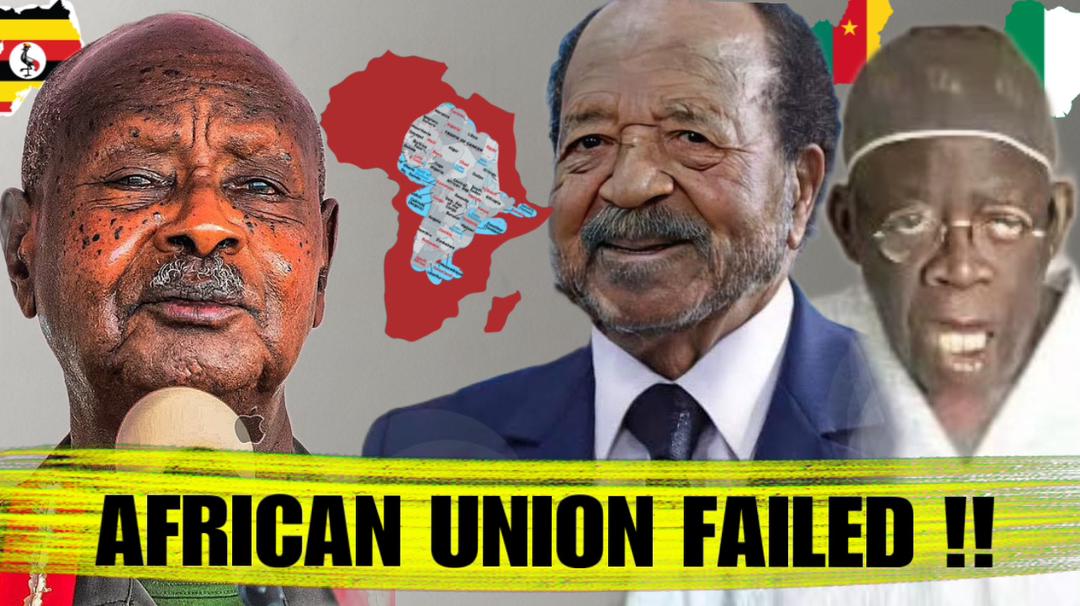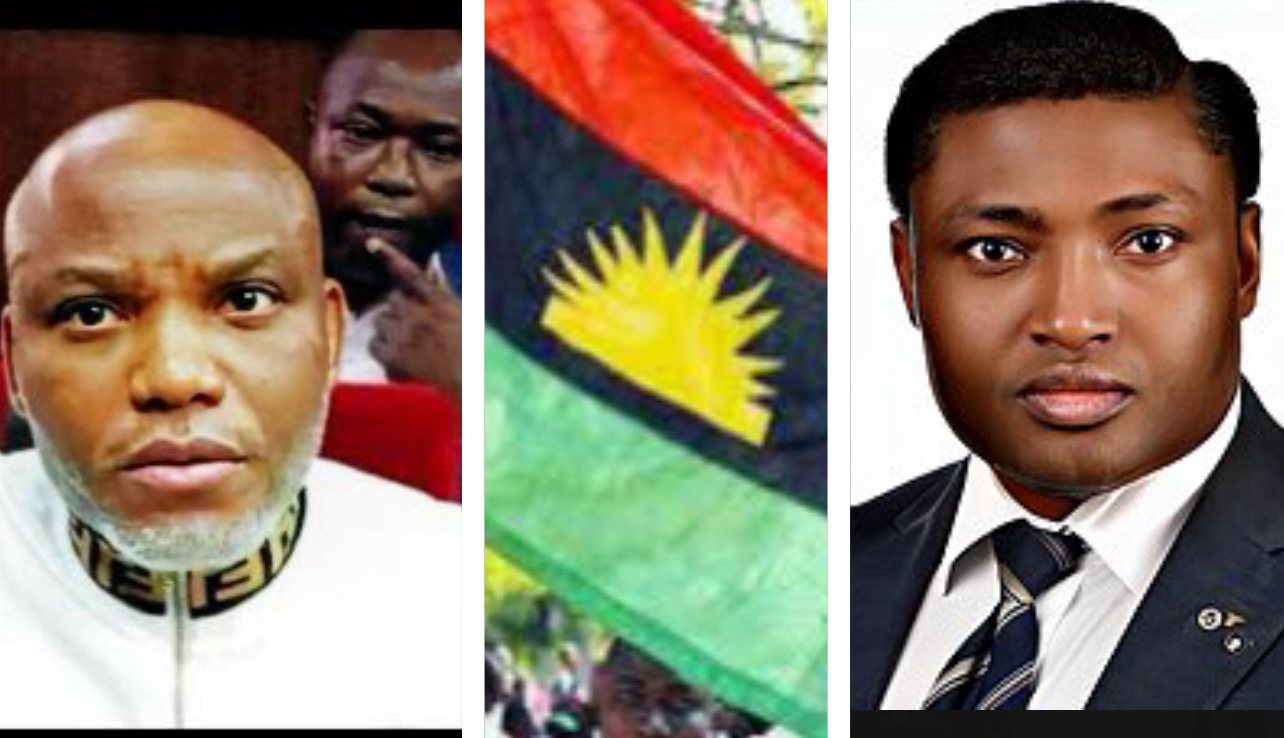Why Are African Leaders So Bent On Holding To Power? Even in Their Old sick Beds!
No doubt Africa has a long, painful history of leaders clinging to power, often long after their ability to lead has diminished.
we’re diving into a problem that has plagued Africa for years: why do so many African leaders refuse to step down, even when they’re too old or sick to lead? Is it fear, greed, or something deeper?
We’ll also expose the shocking irrelevance of the African Union in tackling these issues.
Don’t miss out—like, subscribe, and stick with us as we explore how this crisis is shaping Africa’s future.
Talking about the genesis of African problems today.
Centuries ago, African nations fought for freedom from colonial rule, but today, many are still trapped—this time, by their own leaders. Leaders who choose power over their people have created a new form of oppression. It’s tragic that in some African countries, citizens feel like slaves in their own land. While many leaders point fingers at colonialism for today’s problems, the real issue now is within: dictatorial leadership.
In the words of a Madagascar proverb: “A boat doesn’t know who the leader is—when it turns over, everyone gets wet.” If we don’t address these problems, we all suffer. Silence might be golden, but in matters of injustice and bad leadership, it’s a deadly silence. As Martin Luther King Jr. once said, “In the end, we will remember not the words of our enemies, but the silence of our friends.”
A leader is basically a servant. Why then will a leader ever thinks of imposing himself on his or her subjects if his services are no longer needed? What make them so scared to leave power? At the end of this you will find out.
Talking about the African Union and how irrelevant it has come unlike the European Union.
Africa has everything it needs to succeed, including organizations like the African Union (AU), designed to support cooperation and development. Yet, we haven’t made the progress we should. Compare that to the European Union, which started with a simple market project and is now a strong, unified entity. So what’s the difference?, why is it that Africa cannot make good use of its own systems? The answer still bowls to leadership crisis.
Talking about the 3 major reasons why this Africans leaders are not bent leaving power.
Firstly, Fear of Losing Wealth and Power, ego and persecution.
When in office, they control national resources, wealth, and state contracts, benefitting themselves and their families. Leaving office would mean losing control of this wealth and, for some, facing investigations or charges related to corruption.
Example: Leaders like Paul Biya of Cameroon have stayed in power for decades, using legal loopholes to extend their rule. Stepping down would expose them to potential investigations about how they’ve managed national resources.
Idriss Déby of Chad, Paul Kagame of Rwanda, and Yoweri Museveni of Uganda have extended their terms in office through constitutional changes. Museveni, in power since 1986, faced criticism during the last election, where his opponent, Bobi Wine, was mistreated by security forces.
This raises concerns about the state of democracy in Africa. Have these long-serving leaders truly improved their countries, or are they more focused on maintaining personal power rather than serving the nation’s interests?
People in the public sector are not ready to leave office even though their tenure has expired. You now understand the high unemployment rate issues in Africa and how people are forced to migrate to the Western continent for survival? A situation which is now tagged jakpa syndrome in Nigeria.
Secondly, the role of African Voters and political parties.
Now, we have to ask ourselves: What role do African voters play in this situation? After elections, people often become less vigilant, allowing leaders to get away with more. This lack of accountability enables leaders to manipulate the system, stay in power longer, and make decisions that benefit themselves rather than the country.
But it doesn’t have to be this way. By staying engaged, holding leaders accountable, and demanding change, voters can help create a better system where power is truly in the hands of the people. In some case tribalism have become order of the day of not holding this people accountable. This have become daily menace in the country called Nigeria today.
In some cases political party is the problem to African countries.
It saddens the heart sometimes when you see people who ought to know better and to speak truth to power are behaving like poodles all in the name of either my party is in power and therefore I cannot speak against its actions.
Politics in Africa to some extent seems to be an avenue for either one to enrich himself or the endorsement of wrongs so far as it favors his political party.
Thirdly lack of clear good successor.
One of the most practical reasons African leaders refuse to step down is the lack of a clear successor. Many leaders deliberately avoid grooming a successor to avoid creating competition or rivals. As a result, they feel that stepping down could lead to instability, chaos, or even civil war.
Example: In Chad, former president Idriss Déby ruled for over 30 years before his death in 2021. He never prepared a clear successor, and after his death, his son was quickly placed in power, leading to tensions and concerns about stability. If care is not taken same thing will repeat its self in Cameroon.
In the absence of a strong, prepared successor, leaders often feel that the country will collapse without them. This mindset keeps them in power, even when their health or age suggests it’s time to go.
Ghana, Zambia, Namibia, Malawi, Tanzania etc are African States where regular transfer of power has occurred. Why is it that almost, if not all African leaders once they get power, is to throw their brilliant credentials and track records to the dogs?
One keep hearing youths are leaders of tomorrow, a tomorrow that will never end or come while still hoping on the future that is bright but How’s that brightness assured if most of the youth in society are emulating from these corrupt and power drunk leaders?
Just Incase they don’t know, A true leader is meant to serve the people, so why do some African leaders cling to power when they’re no longer wanted? Many have ruled for decades, yet their citizens remain in poverty despite Africa’s wealth of resources. This isn’t because of a lack of potential, but because of poor governance, greed, and corruption. While the continent is rich, bad leadership keeps the people poor.
Conclusion: The Power Struggle Must End
So, why are African leaders so bent on holding onto power, even in their sick beds? It’s a combination of fear, greed, and a lack of accountability. But the truth is, Africa can’t thrive under leaders who refuse to let go. For the continent to grow and reach its full potential, we need leaders who understand that power belongs to the people—and who are willing to step aside when their time is up.
What do you think? Why do you think some African leaders refuse to leave power? Let us know in the comments below! Don’t forget to like, subscribe, and turn on notifications for more insights into Africa’s political landscape.
Stay tuned, and let’s keep the conversation going!











Post Comment